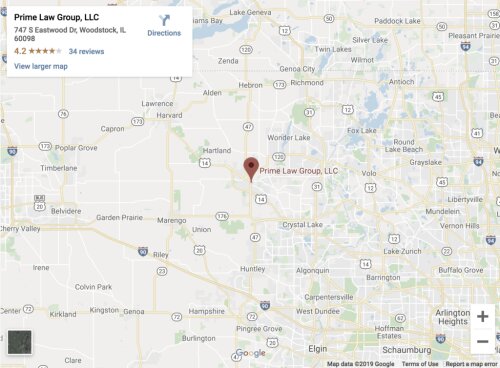Best Dangerous Product Lawyers in Alabama
Share your needs with us, get contacted by law firms.
Free. Takes 2 min.
Or refine your search by selecting a city:
List of the best lawyers in Alabama, United States
About Dangerous Product Law in Alabama, United States
Dangerous product law, also known as product liability law, governs the responsibility manufacturers, distributors, retailers, and others have for injuries caused by defective or unsafe products. In Alabama, these laws are designed to ensure that products entering the market are reasonably safe for consumer use. If a product is found to be inherently dangerous, defectively designed, poorly manufactured, or lacks proper warnings or instructions, those harmed by the product may have a legal right to compensation. These cases can involve anything from household appliances and automobiles to medical devices and children's toys.
Why You May Need a Lawyer
Product liability claims can be complex and challenging. You may need a lawyer if:
- You or someone you love was injured or made ill by a product believed to be defective or hazardous.
- The product caused significant property damage or financial loss.
- The product did not include sufficient warnings or instructions about possible dangers.
- You are unsure if the harm you suffered was due to your own actions or a product defect.
- An insurance company is denying your claim or offering inadequate compensation.
A lawyer specialized in dangerous product cases can help you gather evidence, navigate Alabama's unique laws, and handle communications with manufacturers or their insurers to maximize your chance of fair compensation.
Local Laws Overview
Alabama follows its own state rules regarding product liability. Here are some important aspects:
- Strict Liability: Under Alabama law, manufacturers can be held strictly liable for injuries caused by defective products, meaning the injured person does not need to prove negligence, only that the product was dangerous and caused harm.
- Alabama Extended Manufacturer's Liability Doctrine (AEMLD): This legal doctrine allows victims to bring claims against manufacturers, sellers, or distributors when a product is proven to be defective and unreasonably dangerous.
- Contributory Negligence: Alabama is one of the few states that uses pure contributory negligence. If you are found to be even slightly at fault for your injury, you may be barred from recovering damages.
- Statute of Limitations: Generally, you have two years from the date of injury to file a product liability lawsuit in Alabama. Certain exceptions and nuances may apply, including the discovery rule in some circumstances.
- Damages: Victims can seek compensatory damages for medical expenses, lost wages, pain and suffering, and, in some cases, punitive damages if willful or reckless conduct is involved.
Frequently Asked Questions
What is considered a dangerous or defective product in Alabama?
A dangerous or defective product is any item that, because of a manufacturing error, design flaw, or inadequate warning, poses an unreasonable risk of harm to users when used as intended.
Who can be held liable for a dangerous product injury in Alabama?
Depending on the case, manufacturers, assemblers, distributors, wholesalers, and retailers can all potentially be held responsible for injuries caused by a defective product under Alabama law.
What do I need to prove in a dangerous product case?
You will usually need to show that the product was defective, it was unreasonably dangerous, the defect existed when it left the seller's hands, and that the defect directly caused your injury.
What types of defects can be grounds for a lawsuit?
A claim may be based on manufacturing defects, design defects, or a failure to warn (marketing defect). All can be the basis for a lawsuit if the defect made the product unsafe.
How long do I have to file a lawsuit for a dangerous product injury?
You typically have two years from the date you were injured, but specific circumstances may affect these deadlines. Prompt action is advised.
Can I still recover damages if I misused the product?
Alabama applies pure contributory negligence, so if your misuse of the product contributed to your injury, you may be barred from recovering damages. Each case is fact-specific, so consult with an attorney.
What damages can I recover in a dangerous product case?
You may recover damages for medical expenses, lost wages, pain and suffering, and sometimes punitive damages intended to punish especially reckless conduct.
Do I need to keep the product that injured me?
Yes. Keeping the product is important so it can be examined as evidence. Try to preserve it in as close to its post-accident condition as possible.
Will my case have to go to court?
Many dangerous product cases settle out of court, but if a settlement cannot be reached, litigation may be necessary. An experienced attorney can advise you on the best course.
How much does it cost to hire a dangerous product lawyer?
Most dangerous product lawyers in Alabama work on a contingency fee basis, meaning you only pay if you win your case or reach a settlement. Initial consultations are often free.
Additional Resources
For more information or assistance, consider reaching out to:
- Alabama State Bar Association
- Consumer Product Safety Commission (CPSC)
- Alabama Department of Public Health
- Better Business Bureau Serving Central & South Alabama
- Local legal aid organizations or county bar associations
Next Steps
If you believe you have been injured or suffered losses due to a dangerous or defective product, here is what you can do:
- Preserve the product and any packaging, instructions, or purchase receipts.
- Document your injuries by taking photos and saving all medical records.
- Write down your recollection of how the incident occurred, including dates and any witnesses.
- Consult with an attorney experienced in Alabama product liability law as soon as possible to discuss your rights and options.
- Avoid discussing your case or giving statements to insurance adjusters before you get legal advice.
Seeking guidance early and taking prompt, informed action can significantly improve your chances of a favorable outcome in a dangerous product case.
Lawzana helps you find the best lawyers and law firms in Alabama through a curated and pre-screened list of qualified legal professionals. Our platform offers rankings and detailed profiles of attorneys and law firms, allowing you to compare based on practice areas, including Dangerous Product, experience, and client feedback.
Each profile includes a description of the firm's areas of practice, client reviews, team members and partners, year of establishment, spoken languages, office locations, contact information, social media presence, and any published articles or resources. Most firms on our platform speak English and are experienced in both local and international legal matters.
Get a quote from top-rated law firms in Alabama, United States — quickly, securely, and without unnecessary hassle.
Disclaimer:
The information provided on this page is for general informational purposes only and does not constitute legal advice. While we strive to ensure the accuracy and relevance of the content, legal information may change over time, and interpretations of the law can vary. You should always consult with a qualified legal professional for advice specific to your situation.
We disclaim all liability for actions taken or not taken based on the content of this page. If you believe any information is incorrect or outdated, please contact us, and we will review and update it where appropriate.
Browse dangerous product law firms by city in Alabama
Refine your search by selecting a city.













